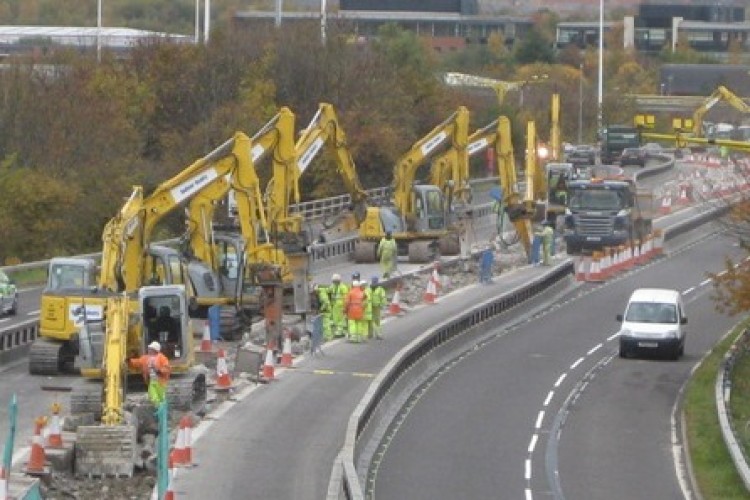CECA external affairs director Alasdair Reisner denied that contractors were calling for privatisation of the motorways and trunk roads. Contractors were “agnostic”, he said, about whether ownership was in the private sector public sector so long as there was long-term visibility about investment plans that the rail and water sectors enjoyed.
CECA has produced a 10-point list of demands (see below) on the back of research commissioned from an economics consultancy that shows how improving UK infrastructure could add 5% to the UK’s gross domestic product (GDP).
As part of its lobbying efforts, the contractors’ organisation commissioned a study from the Centre for Economics and Business Research (CEBR). The resulting report, Securing Our Economy: The Case for Infrastructure, claims that the average cost of the UK’s having infrastructure which fell short of typical developed economy standards was £78bn a year between 2000 and 2010.
Bringing UK infrastructure up to the standard of some other developed economies could contribute £100bn a year to the economy by 2026, the author claims.
According to CEBR, for job that is directly created in infrastructure construction, two jobs are created elsewhere as a spin off. Infrastructure investment gives a 30% return to GDP, it claims.
Daniel Solomon, CEBR economist and author of the report, said: “The UK has paid a high price for having infrastructure which has fallen short of our competitors. We estimate GDP might have been about 5% higher over the past decade if the UK’s infrastructure quality had been in line with countries like Switzerland and the Netherlands.”
Drawing from CEBR’s research, CECA is making the following recommendations to government:
1. Establish a formal threshold for new infrastructure construction activity, ensuring that it does not fall below 0.8% of GDP.
2. Target new infrastructure construction activity to be at or above 1% of GDP over the coming five years, to stimulate growth and close the gap in the quality of UK infrastructure compared to international competitors.
3. Create an independent body to analyse strategic challenges facing the UK, and to identify how infrastructure can play a part in resolving these concerns.

4. Promote prudential borrowing for local authorities to address their highways maintenance backlog through a one-off national programme of intensive improvements to local roads, significantly reducing the long-term cost of maintaining the network.
5. Commit to a clear, long-term energy policy that provides certainty about the types of investment that will be required to update the UK’s generation and transmission capacity, releasing significant private sector investment.
6. Develop a preparation pool of infrastructure projects that can be rapidly delivered, following a model successfully implemented by the Scottish Government.
7. Expand the reduced ‘project rate’ of the Public Works Loan Board from one to three projects per Local Enterprise Partnerships in England, and implement by November 2013.
8. Work with industry to identify and resolve non-financial barriers that are blocking construction of local infrastructure projects.
9. Develop a new model for the ownership and management of the strategic roads network, focussing on providing long-term certainty over the investment required in the network to ensure that it is able to meet future demand in an affordable manner.
10. Make an early commitment to start work on Crossrail 2.
Mr Reisner said: “It is not acceptable to pass our infrastructure deficit on to the next generation.
“We must act now to address this problem, ensuring that construction activity aimed at improving our transport and utility networks never again falls below the 0.8% of GDP threshold at which serious detrimental impacts are felt by the economy.
“Given the gap that has opened up, which costs the UK £78 billion each year, we believe this threshold should be raised to 1 per cent over the next five years to claw back this deficit and improve the UK’s standing against our international competitors.”
Got a story? Email news@theconstructionindex.co.uk
.png)


